- Home
- Cao Xueqin
The Dreamer Wakes
The Dreamer Wakes Read online
THE STORY OF THE STONE
A CHINESE NOVEL BY
CAO XUEQIN
IN FIVE VOLUMES
*
VOLUME V
‘THE DREAMER WAKES’
*
TRANSLATED BY
JOHN MINFORD
EDITED BY GAO E
PENGUIN BOOKS
Contents
NOTE ON SPELLING
PREFACE
CHAPTER 99
Unscrupulous minions make use of their master’s virtue to conceal a multitude of sins; and Jia Zheng is alarmed to read his nephew’s name in the ‘Peking Gazette’
CHAPTER 100
Caltrop disturbs an elaborate seduction and inspires bitter resentment; Bao-yu learns of a distressing betrothal and laments an imminent departure
CHAPTER 101
In Prospect Garden a moonlit apparition repeats an ancient warning; and at Scattered Flowers Convent the fortune-sticks provide a strange omen
CHAPTER 102
Illness descends upon the Jia family in Ning-guo House; and charms and holy water are used to exorcize Prospect Garden
CHAPTER 103
Jin-gui dies by her own hand, caught in a web of her own weaving; Yu-cun encounters an old friend in vain, blind to the higher truths of Zen
CHAPTER 104
Drunken Dime at large again – a small fish whips up a mighty storm; our Besotted Hero in agony once more – a chance thrust quickens a numbed heart
CHAPTER 105
The Embroidered Jackets raid Ning-guo House; and Censor Li impeaches the Prefect of Ping-an
CHAPTER 106
Wang Xi- feng feels remorse for the consequences of her past misdeeds; and Grandmother Jia prays for the family’s deliverance from further calamity
CHAPTER 107
Impelled by family devotion, Grandmother Jia distributes her personal possessions; favoured with an Imperial dispensation, Jia Zheng receives his brother’s hereditary rank
CHAPTER 108
A birthday party held for Sister Allspice necessitates a false display of jollity; and ghostly weeping heard at the Naiad’s House provokes afresh outburst of grief
CHAPTER 109
Fivey shares a vigil, and receives affection meant for another; Ying-chun pays her debt to fate, and returns to the Realm of Primordial Truth
CHAPTER 110
Lady Jia ends her days, and returns to the land of shades; Wang Xi-feng exhausts her strength, and forfeits the family’s esteem
CHAPTER 111
A devoted maid renders a final service, and accompanies her mistress to the Great Void; a villainous slave takes his revenge, and betrays his masters into the hands of thieves
CHAPTER 112
Adamantina discharges a karmic debt and receives a blow from the Hand of Providence; Aunt Zhao concludes a deadly feud and sets out on the road to the Nether World
CHAPTER 113
Xi-feng repents of her former misdeeds, and entrusts her child to a village dame; Nightingale softens a long-standing animosity, and warms to her besotted master
CHAPTER 114
Wang Xi-feng ends her life’s illusion and returns to Jinling; Zhen Ying-jia receives the Emperor’s favour and is summoned to the Palace
CHAPTER 115
A private obsession revived confirms Xi-chun in an ancient vow; a physical likeness verified deprives Bao-yu of an imagined friend
CHAPTER 116
Human destinies are revealed in a fairy realm, and the Stone is restored to its rightful owner; mortal remains are transported to their terrestrial home, and duty is discharged by a filial son
CHAPTER 117
Two fair damsels conspire to save the jade, and forestall a flight from earthly bondage; an infamous rogue takes charge of the mansion, and assembles a gang of cronies
CHAPTER 118
Provoked by a rankling antipathy, Uncle and Cousin plot the ruin of an innocent maid; alarmed by riddling utterances, Wife and Concubine remonstrate with their idiot master
CHAPTER 119
Bao-yu becomes a Provincial Graduate and severs worldly ties; the House of Jia receives Imperial favour and renews ancestral glory
CHAPTER 120
Zhen Shi-yin expounds the Nature of Passion and Illusion; and Jia Yu-cun concludes the Dream of Golden Days
CHARACTERS IN VOLUME 5
GENEALOGICAL TABLES
THE STORY OF THE STONE
Vol. 5
ADVISORY EDITOR: BETTY RADICE
CAO XUEQIN (?1715–63) was born into a family that for three generations held the office of Commissioner of Imperial Textiles in Nanking, a family so wealthy that they were able to entertain the Emperor Kangxi four times. But calamity overtook them and their property was confiscated. Cao Xueqin was living in poverty near Peking when he wrote his famous novel The Story of the Stone (also known as The Dream of the Red Chamber), of which this is the fifth volume. The first four volumes, The Golden Days, The Crab-Flower Club, The Warning Voice and The Debt of Tears, are also published in the Penguin Classics.
•
GAO E (?1740–1815) was a Chinese Bannerman of the Bordered Yellow Banner, who for the last twenty years of his life worked in the Grand Secretariat and the Censorate in Peking. In 1792 he and his friend Cheng Weiyuan published for the first time a complete version of The Story of the Stone in 120 chapters. Previously handwritten copies of the novel had circulated, which ended with the eightieth chapter. Cheng and Gao claimed that they edited the last forty chapters of their complete version from a fragmentary manuscript by the original author.
•
JOHN MINFORD was born in 1946. He studied Chinese at Oxford and at the Australian National University, taught in the People’s Republic of China (1980–82), and then in Hong Kong, where he was until 1986 director of the Research Centre for Translation in the Chinese University, and editor of the journal Renditions. He is now Professor of Chinese at the University of Auckland, New Zealand.
FOR EMMA, LUKE, DANIEL AND LAURA
Note On Spelling
Chinese proper names in this book are spelled in accordance with a system invented by the Chinese and used internationally, which is known by its Chinese name of Pinyin. A full explanation of this system will be found overleaf, but for the benefit of readers who find systems of spelling and pronunciation tedious and hard to follow a short list is given below of those letters whose Pinyin values are quite different from the sounds they normally represent in English, together with their approximate English equivalents. Mastery of this short list should ensure that the names, even if mispronounced, are no longer unpronounceable.
c = ts
q = ch
x = sh
z = dz
zh = j
CHINESE SYLLABLES
The syllables of Chinese are made up of one or more of the following elements:
an initial consonant (b.c.ch.d.f.g.h.j.k.l.m.n.p.q.r.s.sh.t.w.x.y.z.zh)
a semivowel (i or u)
an open vowel (a.e.i.o.u.ü), or
a closed vowel (an.ang.en.eng.in.ing.ong.un), or
a diphthong (ai.ao.ei.ou)
The combinations found are:
3 on its own (e.g. e, an, ai)
1 + 3 (e.g. ba, xing, hao)
1 + 2 + 3 (e.g. xue, qiang, biao)
INITIAL CONSONANTS
Apart from c = ts and z = dz and r, which is the Southern English r with a slight buzz added, the only initial consonants likely to give an English speaker much trouble are the two groups
j q x and zh ch sh
Both groups sound somewhat like English j ch sh; but whereas j q x are articulated much farther forward in the mouth than our j ch sh, the sounds zh ch sh are made in a ‘retroflexed’ position much farther back. This means t
hat to our ears j sounds halfway between our j and dz, q halfway between our ch and ts, and x halfway between our sh and s; whilst zh ch sh sound somewhat as jr, chr, shr would do if all three combinations and not only the last one were found in English.
Needless to say, if difficulty is experienced in making the distinction, it is always possible to pronounce both groups like English j, ch, sh, as has already, by implication, been suggested overleaf.
SEMIVOWELS
The semivowel i ‘palatalizes’ the preceding consonant: i.e. it makes a y sound after it, like the i in onion (e.g. Jia Lian)
The semivowel u ‘labializes’ the preceding consonant: i.e. it makes a w sound after it, like the u in assuages (e.g. Ning-guo)
VOWELS AND DIPHTHONGS
i. Open Vowels
a is a long ah like a in father (e.g. Jia)
e on its own or after any consonant other than y is like the sound in French oeuf or the er, ir, ur sound of Southern English (e.g. Gao E, Jia She)
e after y or a semivowel is like the e of egg (e.g. Qin Bang-ye, Xue Pan)
i after b.d.j.l.m.n.p.q.t.x.y is the long Italian i or English ee as in see (e.g. Nannie Li)
i after zh.ch.sh.z.c.s.r is a strangled sound somewhere between the u of suppose and vocalized r (e.g. Shi-yin)
i after semivowel u is pronounced like ay in sway (e.g. Li Gui)
o is the au of author (e.g. Duo)
u after semivowel i and all consonants except j.q.x.y. is pronounced like Italian u or English oo in too (e.g. Bu Gu-xiu)
u after j.q.x.y and ü after 1 or n is the narrow French u or German ü, for which there is no English equivalent (e.g. Bao-yu, Nü-wa)
ii. Closed Vowels
an after semivowel u or any consonant other than y is like an in German Mann or un in Southern English fun (e.g. Yuan-chun, Shan Ping-ren)
an after y or semivowel i is like en in hen (e.g. Zhi-yan-zhai, Jia Lian)
ang whatever it follows, invariably has the long a of father (e.g. Jia Qiang)
en, eng the e in these combinations is always a short, neutral sound like a in ago or the first e in believe (e.g. Cousin Zhen, Xi-feng)
in, ing short i as in sin, sing (e.g. Shi-yin, Lady Xing)
ong the o is like the short oo of Southern English book (e.g. Jia Cong)
un the rule for the closed u is similar to the rule for the open one: after j.q.x.y it is the narrow French u of rue; after anything else it resembles the short English oo of book (e.g. Jia Yun, Ying-chun)
iii. Diphthongs
ai like the sound in English lie, high, mine (e.g. Dai-yu)
ao like the sound in how or bough (e.g. Bao-yu)
ei like the sound in day or mate (e.g. Bei-jing)
ou like the sound in old or bowl (e.g. Gou-er)
The syllable er, sometimes found as the second element in names, is a peculiarity of the Pekingese dialect which lies outside this system. It sounds somewhat like the word err pronounced with a broad West Country accent.
Preface
Readers who have come this far, and who have already had to wait so long for this final instalment, will be impatient of further delay. This is therefore not the right moment to hold them back. But I must nevertheless do something to qualify the too sweeping judgement of this ending expressed in my preface to The Debt of Tears. While there is undeniably ‘something missing’, and while I still believe this to be a fragmentary original fleshed out by a later editor (or editors), I am less and less certain what exactly that ‘missing something’ is, and more and more convinced that the text we have succeeds in bringing Cao Xueqin’s dream to a fitting conclusion.
‘The tears one owed have all been shed’; now in this fifth volume ‘the tree falls, and the monkeys scatter’. This is the working of karma:
Wrongs suffered have the wrongs done expiated;
The couplings and the sunderings were fated.
One by one events come to pass that were riddlingly foretold in the ‘Dream of Golden Days’, that haunting song-and-dance suite staged for Jia Bao-yu’s benefit by the fairy Disenchantment in the fifth chapter. For scholarly purists the fulfilment of those prophecies is not literal enough, the reversal of fortune not sufficiently extreme. And yet surely it is still a saga filled with human suffering. There is little comfort in these pages. One by one
The disillusioned to their convents fly,
The still deluded miserably die.
We witness death (sometimes brief and poignant, more often protracted and harrowing); ruin (nowhere in Chinese literature is there such a well inventoried chronicle of a family’s ‘confiscation’); disappointment in marriage; the corruption, recorded in documentary detail, of an eighteenth-century provincial tax-collector; the pampered decadence and vicious intriguing of the sons of the rich; the subtly depicted growth of superstition in the crumbling fabric of a noble household.
Against this multifarious backdrop we never lose sight of the protagonist. Jia Bao-yu weaves his way through these events like a sleep-walker, and finally through a dream-vision is awakened to the realization that life itself is but a dream, that
All is insubstantial, doomed to pass,
As moonlight mirrored in the water,
Or flowers reflected in a glass.
The story of his progress to enlightenment, of the return of the Stone to its otherworldly home at the foot of Greensickness Peak, is told with such zaniness and with such an absence of sentimentality that we can easily believe in its truth. It is not a pretext for a plot. It is not a schematic progress, or a series of predictable steps along a stereotyped pilgrim’s path, but a hard-won personal discovery proceeding from the inertia of bereavement, through a long convalescence, a dark night of the soul, to a crisis in which that soul is lifted above the seemingly endless wheel of suffering.
At the very last it is as though we, the readers, have also passed through a dream, have shared a vision in scroll form, bright woodblock impressions of everyday life alternating with the inksplash fantasies of a Yangzhou eccentric. The familar faces come on for their final call and then fade into the snow,
Like birds who, having fed, to the woods repair,
Leaving the landscape desolate and bare.
In translating this last part of the novel, I have again received help from many kind friends over the years. My wife Rachel May read and typed the first part of this volume with her usual fastidious attention to detail, and made many judicious emendations. Mrs Margaret Chung typed the last chapters with great skill and diligence. I must thank once more Dr David Hawkes and Professor Liu Ts’un-yan for listening to my endless queries, and Professor Yang Qinghua of Tientsin for reading through with me an earlier draft in its entirety and making several helpful suggestions for its improvement. Professor Pang Bingjun, also of Tientsin, has shared with me, during many a lively conversation, insights into translation, The Stone and Chinese culture in general. Professor P’an Ch’ung-kwei very generously sent me a copy of his new and sumptuously printed edition of the 120-chapter corrected draft (published in Taipeh in June 1983), while some years earlier Dr Richard Rigby kindly supplied me from Japan with a copy of Itö Söhei’s Körömu.
In Hong Kong Mr Stephen Soong has come to my rescue many a time, while Professor Ambrose King provided me, in 1982, with a much-needed month’s respite from my teaching duties by having me as a Visiting Scholar at New Asia College.
Finally I would like to thank two Chinese friends, one young, one elderly, who for different reasons must remain anonymous.The first initiated me in 1966 into the deep spell that this novel has cast over generations of Chinese readers, and at the same time warned me to keep well away. I ignored the warning. The second is a direct descendant of one of China’s most illustrious families, a family much vilified by the present regime. He is a man of great courage and independence of mind, who suffered imprisonment (and much else) in the fifties. Meeting with him in his tiny backstreet flat and talking animatedly over endless cups of wine about some little heirloom that
the government had just seen fit to restore to him, some scrap of painting from what had been a magnificent collection, always made me think of Cao Xueqin in the Western Hills, brooding over his dream of vanished splendour, piecing together The Stone. My friend related with great humour the story of how he had been taken by his Overseas Chinese brother to visit the local antique shop – he himself had never been inside it before, as the shop was only open to holders of foreign passports. The two of them had the time of their lives wandering around the shop and identifying their family possessions – all of which had been confiscated during the Cultural Revolution and all of which had officially been restored! In the telling of the story there was no trace of rancour. Only warmth, humour, and wisdom. He is an unforgettable man, a man of character and substance. Once we were walking together past the site of his grandfather’s mansion, now mostly demolished and occupied by some dark satanic mill. A momentary shadow crossed his face. Then he laughed. ‘Twenty years ago I still used to feel great bitterness whenever I walked along this street. But gradually as the years went by the pain was numbed and everything, past and present, seemed more and more like a dream. Now I just laugh!’
Hong Kong,
1985
Chapter 99
Unscrupulous minions make use of their master’s virtue to conceal a multitude of sins
And Jia Zheng is alarmed to read his nephew’s name in the ‘Peking Gazette’
TO CONTINUE OUR STORY
We told in our previous volume how Xi-feng, finding Grandmother Jia and Aunt Xue somewhat cast down by the mention of Dai-yu’s death, had endeavoured to raise their spirits with a humorous anecdote.
‘Who else could it be,’ she finally managed to say, after much incapacitating mirth, ‘but our newly married couple!’

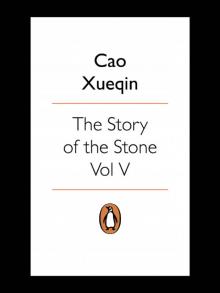 The Dreamer Wakes
The Dreamer Wakes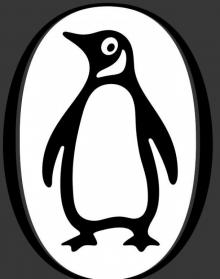 The Warning Voice
The Warning Voice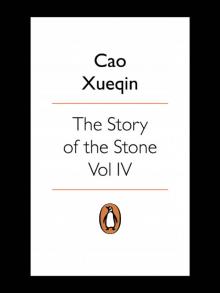 The Debt of Tears
The Debt of Tears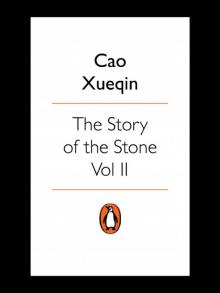 The Crab-Flower Club
The Crab-Flower Club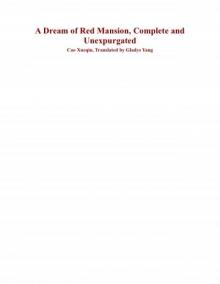 A Dream of Red Mansion
A Dream of Red Mansion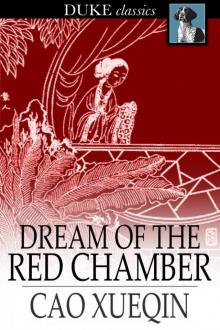 The Dream of the Red Chamber (Selection)
The Dream of the Red Chamber (Selection)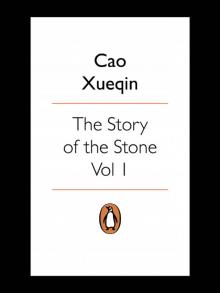 The Golden Days
The Golden Days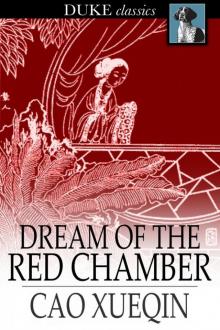 The Dream of the Red Chamber
The Dream of the Red Chamber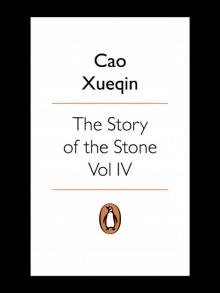 The Story of the Stone
The Story of the Stone